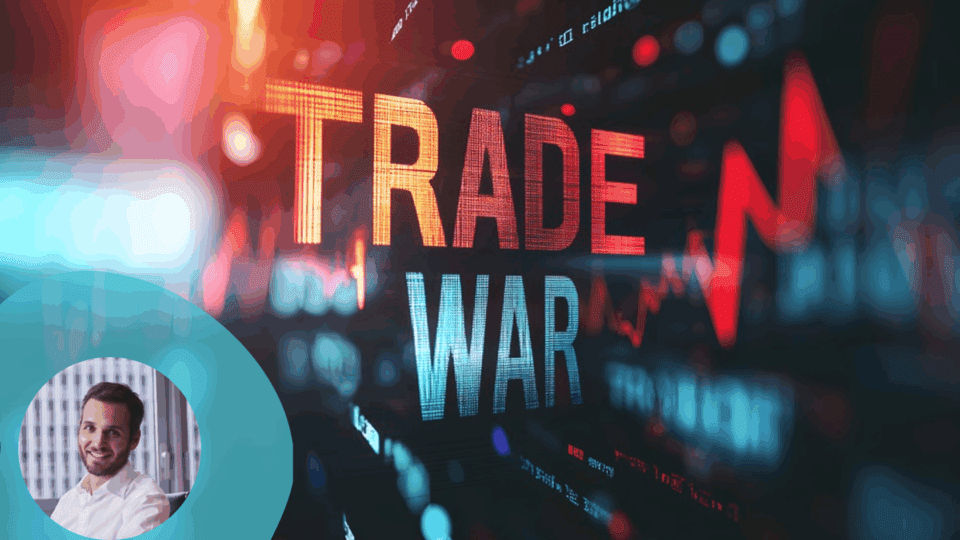The U.S. economy may not have officially entered a recession, but consumers are nonetheless navigating rising prices, dwindling savings and a near-constant stream of financial anxiety. Now, with the onset of widespread global tariffs, consumer confidence has hit its second-lowest point since 1952. Even unconventional indicators of economic health reflect the mood: salon owners have reported a rise in “recession blond” as clients opt to let their natural roots grow out, and Google searches for “press-on nails” in the U.S. are up 10% since February.
This growing sense of unease is the backdrop against which new tariffs are being announced on an ongoing and unpredictable basis. The exact policies may flip-flop, but the result is the same — higher costs on everyday goods.
Unexpectedly, however, there may be a silver lining amidst the uncertainty and confusion. This economic downturn could be the external shock that finally disrupts a dangerous cycle of reckless consumerism. For decades now, we’ve slipped into a culture of convenience, cheap prices and instant gratification. Now, as prices climb, that behavior may no longer be sustainable.
We can’t expect an end to consumption altogether, but we will see a recalibration. Consumers will always shop; they may just start asking the tougher questions about what they are buying and why.
Fast Fashion Faces the Biggest Challenge
The world has long known the detrimental effects that ultra-cheap fast fashion brands have on the environment. And while consumers may play a small role, the buck stops with the major corporations contributing to this culture of waste. As long as they still make money and consumers are willing to shop with them, their practices aren’t likely to change.
With the astronomical rise of Shein and Temu in the past few years, it is clear that the economy has been largely supportive of these business models despite the growing environmental detriment. In fact, since first calculating its baseline emissions in 2021, Shein’s absolute emissions have risen by 176% overall.
Now, with the onset of tariffs and changes to the de minimis rule (previously enabling cheap goods under a certain threshold to avoid import taxes), the pillars fast fashion has built its empire on are fundamentally shaken. If prices rise, even marginally, and begin to approach those of their better-quality alternatives, fast fashion loses its appeal.
The majority of consumers have not always consciously sifted for sustainable goods, but when a $5 top becomes a $10 top and its $20 ethical alternative sits alongside it, the tradeoff gets harder to justify. The onset of tariffs may encourage a moment of reflection that fast fashion has long shied away from.
The ‘Value’ Rebrand
In an era of tariffs and global trade wars, brands can’t rely on low prices as a crutch — the model is eroding under scrutiny. For better or worse, most companies aren’t going to absorb the cost of tariffs; they’ll pass it along to consumers. Against this backdrop, smart brands will recognize a different path, one that reevaluates how value is communicated.
Value will no longer just be perceived as a synonym for “cheap.” It’s all about what you get for what you pay, and in times of uncertainty, that will mean storytelling, transparency and substance.
Luxury brands have mastered this for decades. More than just a product, they are selling the story: the craftsmanship, the scarcity, the experience. That ethos will begin to shift into mid-tier markets as well, where brands are tasked with offering more than low prices.
Today’s consumers are bringing scrutiny to the table. They are seeking detailed breakdowns on manufacturing processes, personalized recommendations, transparent pricing and accurate product descriptions. These insights are now table stakes, and brands must rise to that challenge.
If consumers are going to spend more, they need that justification. Not just a “Made in France” label, but the story and the labor that went into it.
Conscious Consumption is Now in Vogue
While global tariffs are perhaps not the impetus the world expected and certainly not what they wanted, 2025 might finally be the year that consumers ditch reckless spending. As the downturning economy brings on a new era of consumer behavior, brands must let go of the more-is-more ethos: more products, more purchases, more returns.
In the months to come, growth will take on a new meaning. With consumer caution on the rise, superior customer service, unique product features and ethical business practices can still attract and retain customers during times of reduced spending.
There is undoubtedly and understandably a lot of frustration and uncertainty in consumer sentiment today, but it is in times of discomfort that we grow and adapt to our new circumstances. Brands should take this as an opportunity to enact real and powerful changes to help make this industry that much more ethical. Those that take the time to rebrand their value and what it means to serve their customers will come out ahead. If handled with care, we may finally leave behind a culture of waste for something more intentional and lasting.
Romain Fouache, CEO of global product experience leader Akeneo, is as passionate about technology as he is about solving his customers’ biggest problems. He brings more than 20 years of experience scaling category-defining B2B technology companies. As more and more businesses are realizing the material benefits of investing in a single source of truth for product and product-related information, Fouache is committed to providing the software and education to its customers to do just that.




